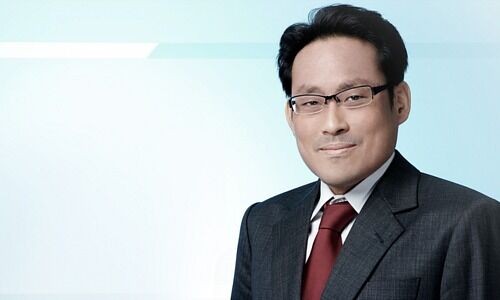Daryl Liew: «Taiwan Is Next on China’s Agenda»
China is stamping its footprint all over Hong Kong. The threat to Hong Kong is clear: if it doesn’t fall into line, the country has Shenzhen ready to takes its role. For the pro-democracy movement, it will be very difficult to gain any traction going forward.
Is Hong Kong being closed down by China?
Not for the moment. Hong Kong has an important part still to play for China. Especially with respect to assessing international investors and capital.
With Hong Kong dealt with, what is China’s perspective?
Looking out over the next ten to fifteen years, Taiwan will turn into a huge flashpoint between the U.S. and China. The battle of the future is no longer over oil, but semiconductors. Whoever controls semiconductors, controls the sea-lanes. The top semiconductor producer is TSMC, having overtaken Intel. It is now the global leader by far and it is right on the doorstep of China.
«If China can’t achieve its target by democratic methods, there is a risk that they might do it by force»
Bringing Taiwan into the fold is part of the agenda of President Xi Jinping, who is strongly nationalistic. He had two major targets for his presidency. That was to bring back Hong Kong – that has been achieved. The other is to bring back Taiwan.
What stands in his way?
The Democratic Party of Taiwan, which rules the country, is anti-Chinese. If China can’t achieve its target by democratic methods, there is a risk that they might do it by force.
The U.S. in 1979 released an act under which it implicitly guarantees the security of Taiwan. So far, this guarantee has taken the form of selling weapons to Taiwan. Trump sold record amounts of weapons to Taiwan. The question is, how it will develop under a Biden administration? He will probably honor the American commitment to Taiwan. The bigger question is whether the U.S. would send troops to defend Taiwan if China were to invade the country.
Is Taiwan worth the risk of a possible war for China?
China has only just decided to continue building its military presence. They will continue spending huge amounts of money on the armed forces. They will build up their bases in the South China Sea and looking to encircle Taiwan.
«War is in nobody's interest»
War is in nobody’s interest and China would prefer to achieve change in Taiwan in a peaceful manner. But that doesn’t seem imminent.
Is there a risk that China decides to advance on its agenda, because the U.S. is weakened by the pandemic and the economic outfall and because Biden is seen as softer?
I don’t think it will happen within the next five years. It would be a very dramatic step to take and Xi Jinping will want to exhaust other means first.
What is China's agenda on the economy?
The current focus of China in economic terms is to steer the country away from its reliance on exports towards a stronger domestic economy. They want to build up their strategic industries because the government doesn’t want to be held to ransom by for instance the U.S. Their focus, therefore, is to build their own national champions.
Why did China cancel the IPO of Ant?
China had applied a soft regulatory stance to allow the likes of Alibaba and Tencent to grow really quickly. Now all of a sudden, they are looking at it from a risk perspective. I don’t know why they decided to pull the plug at such a late stage. There is a talk that Jack Ma (the head of Alibaba) made comments that government officials didn’t appreciate.
«If you are a company in China, you have to toe the line»
The clampdown is causing me some concern. These companies have become very profitable and are a source of pride for China. But to allow these innovative minds to thrive, you have to give them the right environment. The question, therefore, is how tightly China is planning to control the big tech companies in the future.
So clearly, the government has shown that it is still in charge.
What does that mean for Swiss banks that are investing heavily in China?
If you are a company in China, you have to toe the line, unfortunately. You have to maintain good relations with the government.
The case of Ant has shown that the government is looking very closely into such issues and the environment is going to be different going forward.
Daryl Liew is the chief investment officer at Reyl Singapore. Liew, who has a Masters in Business Management from Asia Institute of Management previously worked for Providend in Singapore. At Reyl, Liew is a member of the investment committee.
- << Back
- Page 2 of 2




























